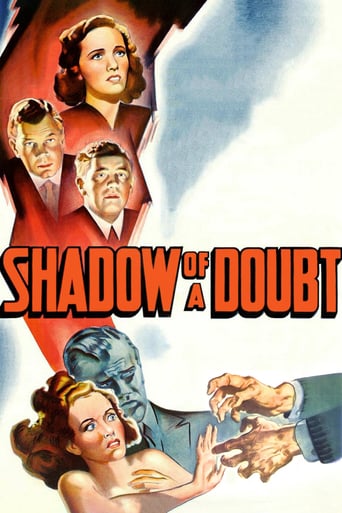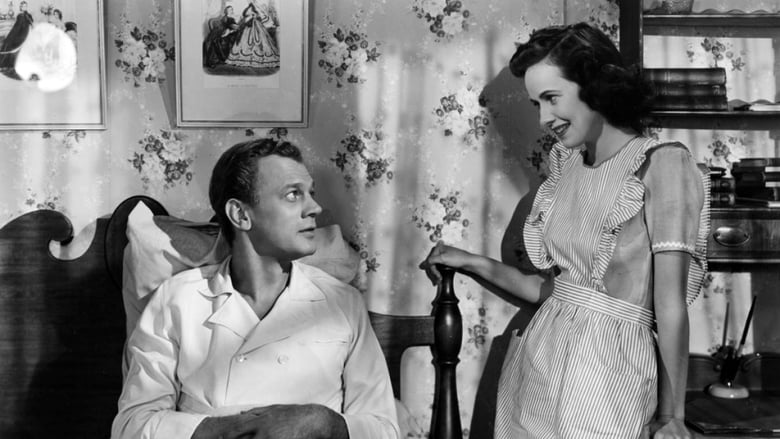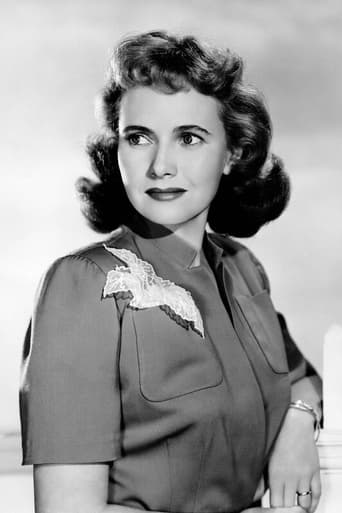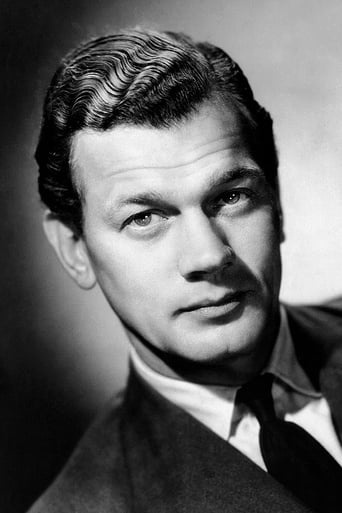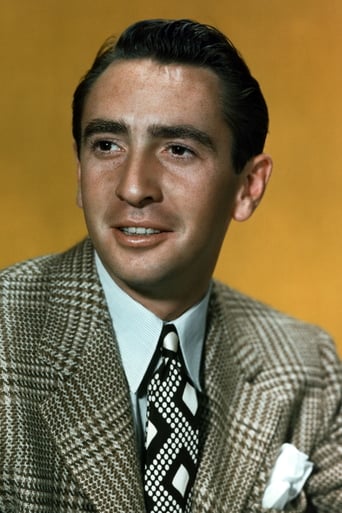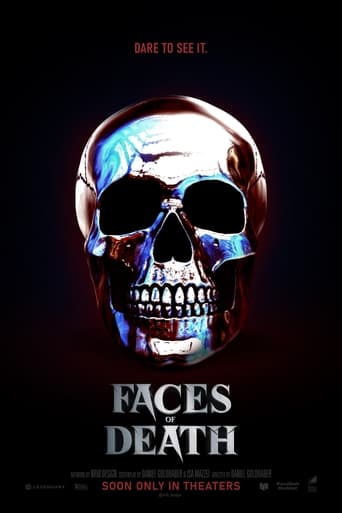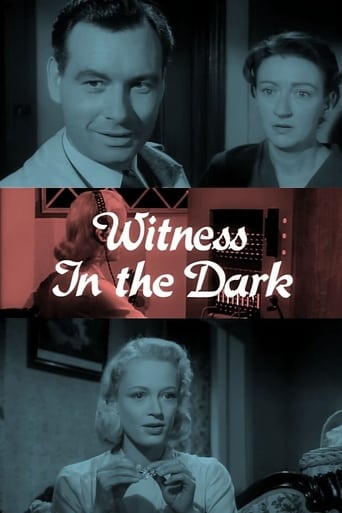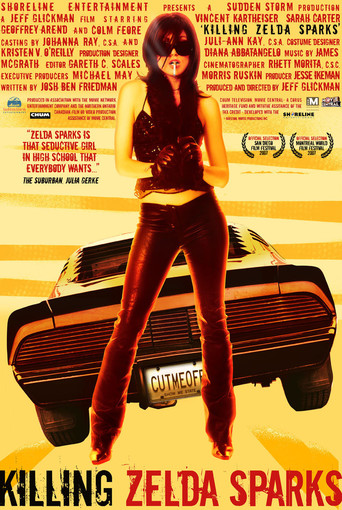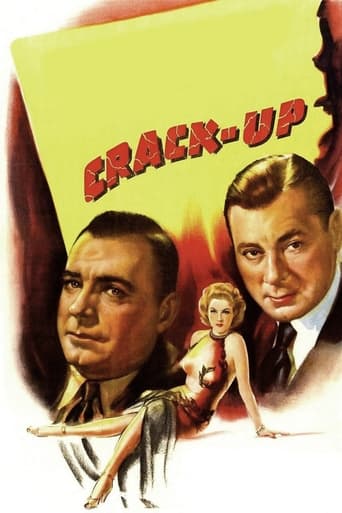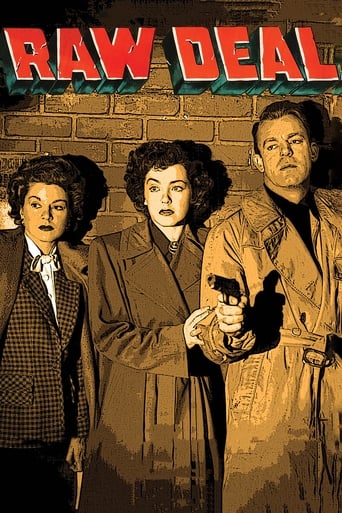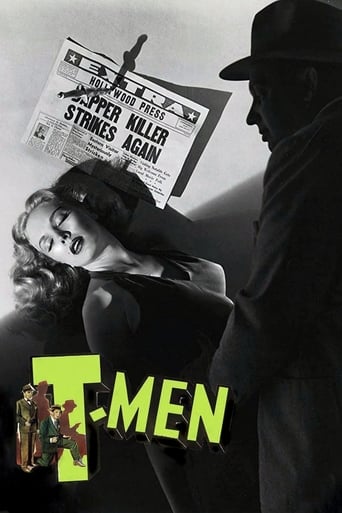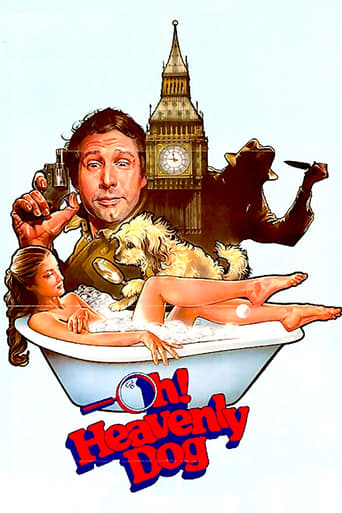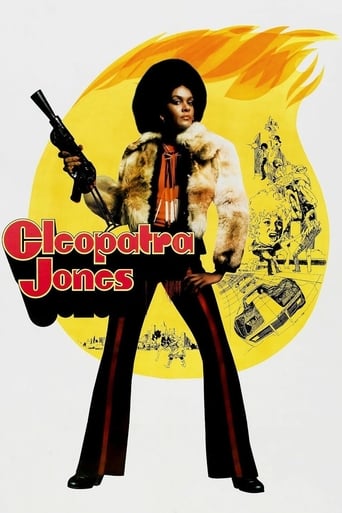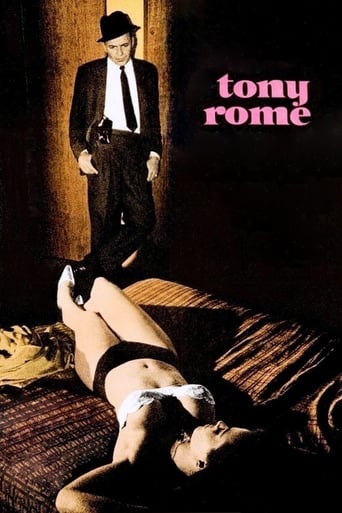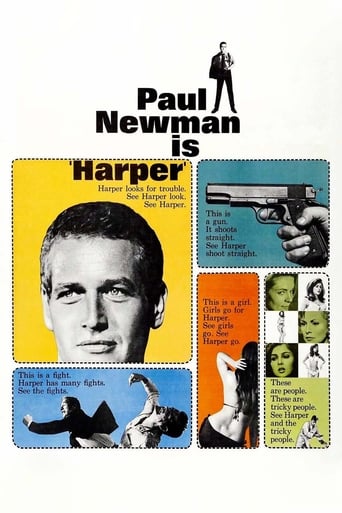Shadow of a Doubt (1943)
Just when Charlotte ‘Charlie’ Newton, is feeling especially frustrated by the lack of excitement in her small town in California, she receives wonderful news: Her uncle and namesake, Charlie Oakley, is coming to visit. However, as secrets about him come to the fore, Charlotte’s admiration turns into suspicion.
Watch Trailer
Cast


Similar titles
Reviews
Great Film overall
This is one of the few movies I've ever seen where the whole audience broke into spontaneous, loud applause a third of the way in.
It’s not bad or unwatchable but despite the amplitude of the spectacle, the end result is underwhelming.
An old-fashioned movie made with new-fashioned finesse.
'Shadow Of A Doubt (1943)' is certainly not Hitchcock's finest - though he himself considered it his favourite - as it succumbs to a slow pacing and general lull in interest - or specifically tension - due to its mostly nonchalant nature. This unconventionally domestic film-noir thriller still sits comfortably in the iconic director's repertoire as an early example of his ability to eek suspense from a seemingly simple and mundane situation, though, here in the long term. The flick is surprising in the minutia rather than the overall arc - it's pretty obvious from its title and opening where it's going - and the excellent performances sell this kind of unsettling, long-term, intention-turning home-invasion that only really escalates because our protagonist can't let go of the information she's found out, never-mind the fact that she just had to find it out in the first place. Curiosity really did kill the cat in this one and it is interesting that ignorance truly would have been bliss for all the major players here. But once you know, you can't go back and its this central theme that's incredibly interesting, compelling and not all that often explored. Neither is the true tear she feels between family and morality, which is also a gripping and complex problem to grapple with. Indeed, the feature works on many levels and has many levels to it, with some unconventional aspects even coming in the form of what's not there as much as what is, but there's not a full exploration of all of these ideas and some of them are just mere moments. It will pay off more if you're willing to get on-board with the deeper messages and moral quandaries it may present, but is still an engaging and entertaining affair even on its surface. 7/10
The Newton family of Santa Rosa California receive an unexpected visit from their Uncle Charlie. He lives in Philadelphia and is a bit of a legend in the family, being a wealthy, self-made man. His niece, also named Charlie, is particularly fond of him. However, when he arrives, Uncle Charlie starts to act suspiciously. Soon two surveyors appear at the house and start to ask questions about Uncle Charlie. (Niece) Charlie starts to investigate and discovers that the two men are detectives and Uncle Charlie is a suspect in a nationwide manhunt and murder investigation. However, the closer she gets to the truth, the more her own life is potentially in danger.A reasonably intriguing Alfred Hitchcock crime drama. In typical Hitchcock fashion it unfolds slowly and deliberately, incrementally revealing just enough to keep you watching, while building up to a tense climax.Not among Hitchcock's best though. The build-up is perhaps too slow here. In addition, despite the title, there is not really that much doubt about whether Uncle Charlie is involved in the crimes, so the possibilities with regard to the outcome are limited. The conclusion thus feels a touch inevitable, though there are a few other ways it could have gone (however, none of these would have been as exciting or complete).
Many of Alfred Hitchcock's films during the 1940s were little more than propaganda flicks that seemed to have more to do with nationalism than truly creative movie-making. Fortunately, "Shadow of a Doubt" is a much more visceral tale dealing with the loss of innocence and small- town life.For a basic plot summary, "Shadow of a Doubt" sees Charlie (Joseph Cotten) on the run from the police in New York. Charlie evades the law by catching a train to the West Coast and hunkering down with his family in California, who know nothing of his shady past and view him as almost a sort of saint. However, Charlie's namesake niece (Teresa Wright) starts to piece together what Charlie is up to, putting both herself, her family, and the entire town in potential danger.This film is a better Hitch effort because of its insistent themes. Though because the time period was one of more restraint when it came to controversial themes at the box office, "Shadow of a Doubt" manages to still create a creepy atmosphere that at times is very uncomfortable. The idyllic community myth is shattered by the likes of characters like Charlie, who uses lies and manipulation to continue a spree of lawlessness. These themes could be done much more prominently and grittier in today's Hollywood, but in the early 1940s the hints were likely enough to put viewers in a suspenseful mood.Overall, then, "Shadow of a Doubt" is a solid Hitchcock flick that easily deserves a watch from fans of Hitch. I wouldn't consider it to be Hitch's crowning achievement (as he always thought it was), but it is nearer to the top than to the bottom.
"It (the world) goes crazy sometimes." Jack Graham (Macdonald Carey)Although "Shadow of a Doubt" opened at theaters in January of 1943, it was made in 1942, a year in which much of the world had found itself entangled in the horrific violence and uncertainty of a major global conflict, World War II. Considering that the same conflict played such a prominent role in Hitchcock's other films from the same period (Foreign Correspondent, Saboteur, and Lifeboat), I do not believe that the final words of this film are unintentional. In 1942, the world had indeed gone crazy, and Alfred Hitchcock was well aware of its state of insanity at the time. In many respects, the character of "Uncle" Charlie Oakley (Joseph Cotten) served as a mere personification of what the world had become. Beyond this, the fundamental viewpoint of Uncle Charlie, that the pleasant appearances of "normalcy" in such a world conceal the basic evil that dwells deep within, is a perspective that may very well have been triggered by the brutality and barbarism that World War II had unleashed at the time.Once again, Hitchcock uses his brilliant skill as a film director, to unravel the truth of a specific matter, in this case the true character of Uncle Charlie. The key vehicle of revelation is young Charlie Newton (Teresa Wright), a bright and inquisitive young woman whose innocent adoration for her uncle gradually turns to intense loathing as she slowly discovers the monstrous truth about him.Wright and Cotten are both excellent in the lead roles, and their outstanding performances are augmented by a terrific supporting cast, including Hume Cronyn in his film debut, Henry Travers, Patricia Collinge, Macdonald Carey, Wallace Ford, and even the child actors, Edna May Wonacott and Charles Bates. I credit Mr. Hitchcock, the director, for once again bringing out the very best results from his carefully selected cast. Although Collinge's character of Emma Newton often exasperated me, I believe that's how she was supposed to play her. The fact that Emma could not see or rather chose not to recognize what her young daughter had observed at an early point in the picture was infuriating to me, but all of the other folks in Santa Rosa who glorified a monster were no better than Emma. People can be like that, and there is nothing that any of us can do about it. This reality is as true today as it was in 1942, maybe even worse now.Hitchcock very much valued the locations that he carefully selected for his films, including notable landmarks. In the opening scene, we observe the gray 1942 skyline of Newark, New Jersey, the city of my birth, and the Pulaski Skyway that connects Newark to Jersey City and New York City as it spans the meadow lands that stretch in between. The gritty, gloomy locale of Uncle Charlie's rooming house is in the Ironbound section of Newark. From that shabby, rundown environment, Uncle Charlie arrives in the somewhat idyllic northern California city of Santa Rosa, where the sun always seems to shine and where everyone smiles and says hello. The obvious contrast should not be lost on anyone. Whether perceived or real, Hitchcock's distinction of these two places significantly contributes to the important theme of the contamination of innocence by evil. As a Newark boy, I don't take any of this personally. Why would I?

